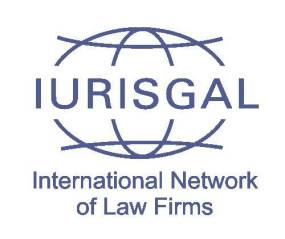Debts and Defaults: Can I Claim Them?
Debts and Defaults: Can I Claim Them?

On May 27th, Ms. Mireia Paulo, Director of the European-American Market and Investment Projects, spoke in the webinar entitled “COVID-19 impact on international contracts and their effects on collection management: new scenarios for export businesses in China, UK, Italy, and the U.S.”
COVID-19 has affected commercial contract endorsement, and particularly credit protection, collection management, and claiming defaults. This unusual situation means additional attention must be paid to the management of contractual risks, such as force majeure clauses. Currently, governments of different countries have adopted varied measures to tackle issues arising from this disruptive environment. Depending on the jurisdiction, the issued regulations differ, notably regarding the measures to claim and manage debts, including negotiation forms.
Four countries have been hit especially hard by the current pandemic, and among them, there are key international trading actors. Hence, the webinar briefly presented the existing scenario in the United Kingdom, Italy, United States, and China. The general situation and the measures adopted in each of the discussed countries were examined, and suggestions for the debt claim and risk management were offered.

The event was organised by Extenda, Agencia Andaluza de Promoción Exterior, a public company of the Junta de Andalucía dedicated to the support the internationalization process of Andalusian companies.

The event was supported by IURISGAL I.N.O.L.F., a Global Network of independent Law Firms whose main spoken language is Spanish, and which is actively present in five continents, with more than 50 firms. Four IURISGAL members and representatives of local law firms were invited as guest speakers to discuss the topic at hand.
1. United Kingdom: Carmen Calvo, “Mayo Wynne Baxter LLP” with offices in Brighton, London, Eastbourne, East Grinstead, Lewes, Pulborough, Seaford, and Storrington.
2. Italy: Natalia del Olmo, "Studio Legale Tosato", Rome and Milan.
3. United States: Frank Montero, "Fletcher, Heald & Hildreth", Washington DC.
4. China: Mireia Paulo, "A&Z Law Firm", with offices in Shanghai, Wuhan, Beijing, Dalian and Tokyo.
The event started with some introductory words by Extenda representative, Julio Andrade, Iuris Chair, and Blas Rivas Alejandro, president of the IURISGAL International Network, followed by IURISGAL guests.
Natalia del Olmo introduced the general economic and legal context resulting from COVID-19, as well as mentioning the aspects that are common to most of the jurisdictions, and have impacted most business sectors. Due to the quarantine and lockdown measures, for example, many businesses have stopped production, distribution channels are affected, and employees could not go back to work. Thus, shipments have been delayed, productions have not been finished, and payments are not made. This environment has affected the liquidity and solvency of a great number of companies, particularly those operating in the hospitality, recreation, tourism, retail, and manufacturing. The International Monetary Fund estimates that world production will contract by 3%, with a drop in world trade of 11% in 2020, and that advanced economies will demonstrate the worst performance.
Emergency measures
Given this problematic economic situation, governments of these four countries have implemented various emergency measures to support companies. In the case of China, numerous measures have been implemented to stimulate SMEs, most affected industries, work resumption, tax reductions, among others. For instance, a relevant measure for foreign-invested companies, on March 9th: Notice of the National Development and Reform Commission on Further Deepening the Reform regarding Foreign Investment Projects to Respond to Epidemic Situations [国家发展改革委关于应对疫情进一步深化改革做好外资项目有关工作的通知发改外资〔2020〕343号]. This notice states that the NDRC and MOFCOM will revise the Catalogue of Industries Encouraging Foreign Investment. For projects beyond the investment quota, companies may enjoy tariff exemptions, though they must apply via the provincial development and reform commission.
Other policy measures are mentioned in the following links:
The Latest on COVID-19 and Express of Epidemic Policies(5/8/2020-5/14/2020)
The Latest on COVID-19 and Express of Epidemic Policies(5/1/2020-5/7/2020)
The Latest on COVID-19 and Express of Epidemic Policies(4/24/2020-4/30/2020)
The Latest on COVID-19 and Express of Epidemic Policies(4/17/2020-4/23/2020)
The Latest on COVID-19 and Express of Epidemic Policies(4/10/2020-4/16/2020)
Regulatory aspects
In reference to Chinese legislation, one must highlight that there are no changes as to the supervening impossibility of the provision, excessive onerousness and temporary impossibility, which differs from other jurisdictions, such as Italy. Nevertheless, the Supreme People’s Court of the PRC issued two judicial interpretations that explain the application of existing laws, such as Contract Law (Art. 117-119), considering the impact of the coronavirus.
Companies should be familiar with these two interpretations to further understand if their situation could be considered under force majeure event or not, among other issues. The interpretations can be found here:
Another difference with other jurisdictions is that in relation to insolvency bankruptcy, applications are admissible in the Chinese jurisdiction, and there is not, nor is it expected, any alteration of said procedures.
Suggested solutions
The webinar ended by providing suggestions to companies for preventing and managing risks. In the case of China, some of the recommendations are:
1. Conduct a Due Diligence of the business partner, verify the financial and solvency status, for instance, check on the National Agency of Industry and Commerce website;
2. Ask to provide a guarantee in the agreement (such as the bank guarantee), particularly when the credit situation of the partner is unclear;
3. Use the letter of credit as a payment method in international trade agreements;
4. Review and adapt post-COVID-19, force majeure, governing law, and dispute resolution clauses.
In every company, operational strategy and business development is different, legal recommendations must be tailor-made to your companies’ situation. A&Z attorneys, with corporate, dispute resolution, labour and compliance, logistics, among other legal expertise, are at your disposal to listen, assess, and provide you with the adequate legal opinion to claim defaults, deal with debts, and design management risk strategies.



